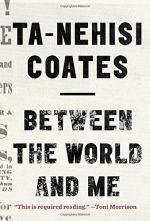
|
| Name: _________________________ | Period: ___________________ |
This test consists of 15 multiple choice questions and 5 short answer questions.
Multiple Choice Questions
1. Why was the man on page 112 arguing with the boy in the car?
(a) The man wanted to rob the boy.
(b) The boy was trying to run him over with the car.
(c) The boy was pointing a gun at him.
(d) The boy refused to turn down his music.
2. Which Howard University student was shot by a PG County officer shortly after the author's encounter with the police?
(a) The girl with the long dreadlocks.
(b) Trayvon Martin.
(c) Prince Jones.
(d) The author's wife.
3. Whom does the author describe as the "below of the country"?
(a) The police.
(b) Himself and all black people.
(c) All politicians and people of power.
(d) The poor and uneducated masses.
4. How does the author describe Prince Jones?
(a) A baller and a heartless thug.
(b) A dreamer and a poet.
(c) A good Christian and scion of a striving class.
(d) A gentle soul washed away by society.
5. Whom does the author blame for the death of Prince Jones?
(a) America and its fears.
(b) God.
(c) The educational system.
(d) A police officer.
6. What excuse did the man on page 112 give for shooting the boy in the car?
(a) He claimed the gun went off by accident.
(b) He claimed to have seen a shotgun in the car.
(c) He claimed the boy was trying to run him over with the car.
(d) He said he was angry.
7. Why was the author ashamed of his thoughts as he took his four-year-old son to preschool?
(a) He was afraid for his son's safety among all the strange children.
(b) He did not want his son in a multicultural classroom.
(c) He was jealous of the advantages he was providing for his son.
(d) He was angry that the teachers were white.
8. How did the man who was evicted from his home react to the presence of the police?
(a) He was afraid.
(b) He became angry.
(c) He began to cry.
(d) He ran away.
9. What question does the author pose about assaulting an officer of the law?
(a) Should offenders of assault be punished or rehabilitated?
(b) Should assaulting an officer be a capital offense?
(c) Should assault be grounds for a broken body?
(d) When violence begets violence, when does the circle end?
10. What Civil War battlefield did the author visit with his son and nephew?
(a) Petersburg Battlefield.
(b) Prairie Grove.
(c) Pea Ridge.
(d) Elkin's Ferry.
11. What did the author notice as he walked the streets of Paris for the first time?
(a) Everyone was ignoring him.
(b) Everyone was smiling.
(c) He was not afraid.
(d) There was an odd odor.
12. Why did the author feel it was unnecessary to forgive the man who killed Prince Jones?
(a) The man needed to forgive himself.
(b) Forgiveness does not bring back the dead.
(c) He was merely expressing America's beliefs about black men.
(d) He was dead.
13. When the author sees a police officer, he automatically thinks:
(a) Someone is trying to protect him.
(b) He is not at fault.
(c) Nothing.
(d) Something is wrong.
14. According to the author, "In America, it is traditional to destroy the _____" what?
(a) Victim.
(b) Past.
(c) Soul.
(d) Black body.
15. According to the author, this son has been cast into "a race in which the wind is always at your face and _____" what?
(a) The hounds are always at your heels.
(b) Ffire is at your feet.
(c) You will always be running headfirst into it.
(d) A knife is always at your back.
Short Answer Questions
1. What comparison does the author make between the police officer who shot Prince Jones and the ones who died on September 11?
2. Who was Abraham Brian?
3. Why was the author's son pushed off the escalator?
4. From what does the author draw joy?
5. The dead boy's mother channeled her anger into _____.
|
This section contains 689 words (approx. 3 pages at 300 words per page) |

|




